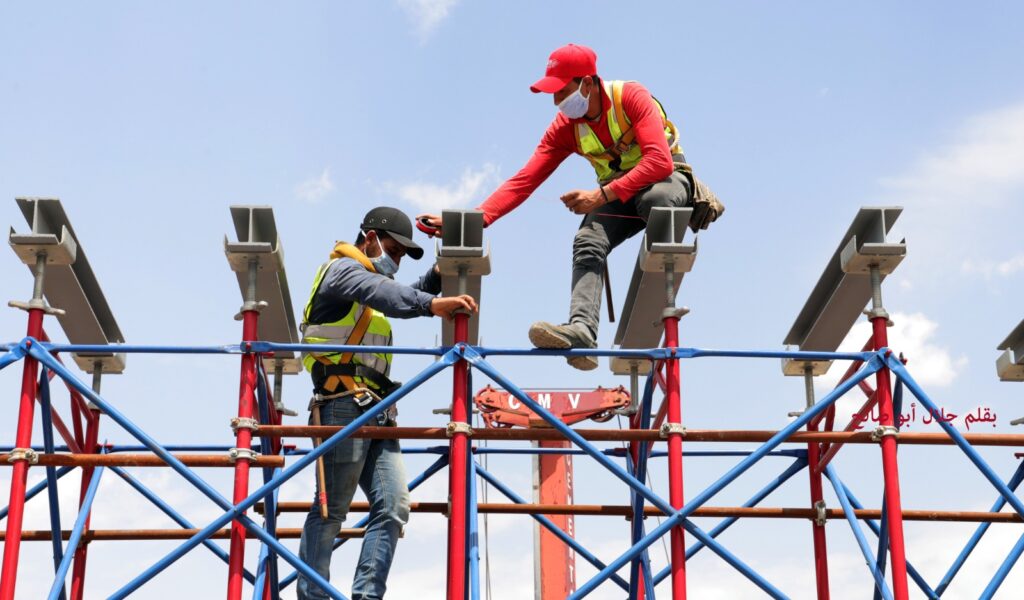
As Labor Day on May 1st approaches, it reaffirms the vital role of work in building societies and ensuring economic and social stability. Improving working conditions and safeguarding workers’ fundamental rights are essential for achieving inclusive and equitable development. Global evidence shows that productivity and growth cannot be sustained without a work environment that preserves dignity and ensures fairness in opportunity and treatment.
The Arab region faces mounting challenges in this regard—ranging from high unemployment rates and the widespread prevalence of informal labour to limited social protection and a disconnect between education and market needs. These realities demand the activation of strategic and collaborative partnerships among the public and private sectors, civil society, and educational institutions to effectively address these issues.
Challenges Facing Arab Labour Markets
According to International Labour Organization (ILO) data, unemployment in Arab countries reached 10.7% in 2023, with youth unemployment exceeding 25% in several countries. Compounding the problem is the high rate of informal work, estimated to encompass 45% to 60% of the workforce, leaving millions without legal or social protections, especially in sectors such as agriculture, services, and seasonal labour.
Additionally, there is a significant disparity in wages and working conditions among different worker groups, exacerbating economic and social inequality. This fragility undermines stability and weakens economic resilience in times of crisis.
Minimum Wage and Economic Pressures
The minimum wage serves as a key tool for promoting economic justice and improving workers’ ability to meet basic needs. In Jordan, the government announced an increase in the minimum wage from 260 to 290 Jordanian Dinars starting January 2025. While a positive step, this increase remains insufficient without concurrent reforms to working conditions, stronger enforcement mechanisms, and expanded protections for informal workers, who often earn below the legal minimum.
Wages must also be viewed within the broader economic context, which includes rising living costs, sluggish growth, and declining investments. These factors necessitate balanced policies that take into account workers’ needs, market capabilities, and economic stimulus requirements.
Bridging the Gap Between Education and Market Demands
There is a clear mismatch between the skills provided by education and training systems and those required by modern labour markets. Current programs often lack alignment with the digital economy, renewable energy, and technology sectors, contributing to high graduate unemployment.
In Jordan, this skills gap has created a structural imbalance in labour supply and demand. There is an urgent need to develop flexible vocational education approaches and practical programs tied to the private sector to bridge this divide and improve employment prospects.
Work Environment and Occupational Safety
Jordan reports nearly 20,000 workplace injuries annually, highlighting poor adherence to safety standards in many sectors, particularly construction and agriculture. This underscores the need to reform workplace safety culture, intensify training, and strengthen inspection tools, while incentivizing employers to adopt effective safety systems.
Workplace environments also witness cases of verbal and psychological abuse, especially in low-wage or precarious jobs. This calls for a broader review of workplace standards to include mental and social well-being, not just physical safety.
Migrant Labour: Essential Role, Missing Rights
Migrant workers are central to labour markets across the Arab region, particularly in the Gulf, Jordan, and Lebanon, where they make up over 40% of the workforce in some countries. Despite their contributions, many face unjust conditions, including low wages, lack of social protection, and limited access to rights and services.
The sponsorship (kafala) system in some countries restricts workers’ mobility and ties them completely to employers. This presents a dual challenge: creating policies that protect migrant workers’ rights without undermining existing economic systems, and aligning with international labour standards that promote fairness, equality, and human dignity.
Expanding the Social Protection Net
Jordan’s social security data shows that nearly half the workforce remains uncovered by insurance, especially in the informal sector. This leaves a large portion of workers vulnerable to severe economic and social risks. Comprehensive policies are needed to gradually and efficiently integrate informal workers into protection systems that include retirement, health insurance, and workplace injury compensation.
Achieving this expansion requires close coordination between the state, employers, and civil society to ensure inclusive coverage without jeopardizing market flexibility or the sustainability of small enterprises.
ARDD… Civil Society Has a Crucial Role to Play
Civil society plays a supportive role in addressing labour market gaps and enhancing social cohesion by raising awareness, conducting research, producing policy briefs, and facilitating dialogue among stakeholders.
The Arab Renaissance for Democracy and Development (ARDD) offers an effective model through its initiatives that connect education, economic empowerment, livelihoods, and social protection. Examples include the “Sammem,” “Toward the Future: Exploring Local Livelihoods,” and “Investing in the Future” projects, which focus on developing skills, engaging civil society, and linking youth to the labour market through hands-on training, technical support, and career development.
ARDD’s Human and Economic Development Forum (HEDF) also plays a key role in convening stakeholders from public and private sectors, academia, and civil society to foster a shared understanding of priorities and coordinate national efforts for labour market reform.
In this context, ARDD emphasizes the importance of civil society working across sectors to identify sustainable livelihood opportunities for both local communities and refugees, support startups in Jordan, and build youth capacities, contributing to market development and national economic growth.
Moving Forward
Ultimately, labour market reform requires political will, strategic investment in human capital, and genuine collaboration among all stakeholders. Economic stability and social justice cannot be achieved without establishing a work environment rooted in competence and dignity, supported by fair and inclusive protections for all workers, citizens, and migrants alike.
Our flagship newsletter provides a weekly round-up of content, plus receive the latest on events and how to connect with the institute.